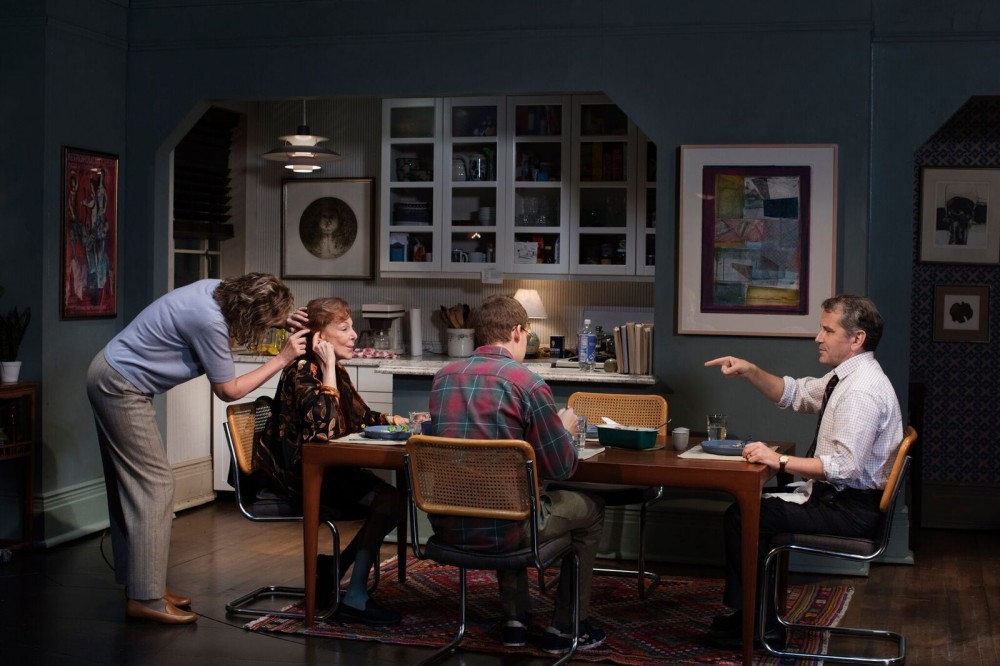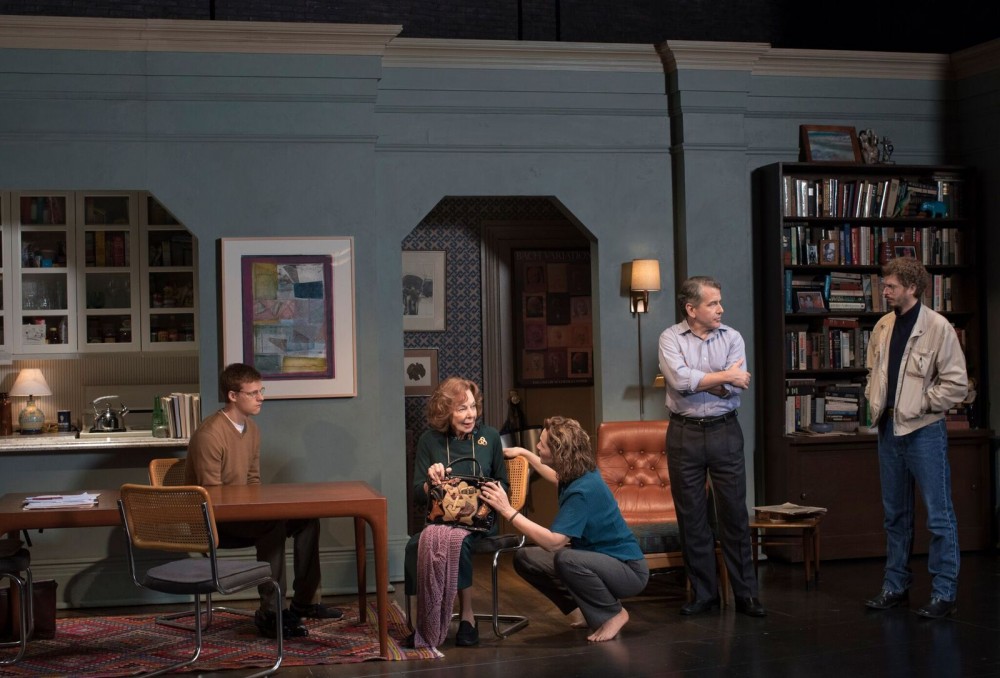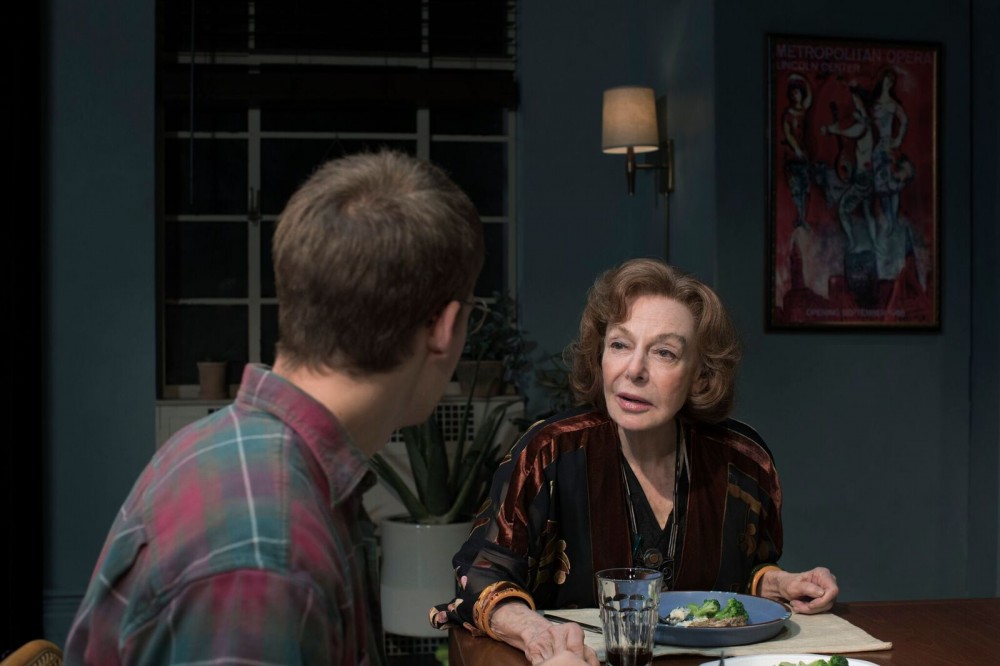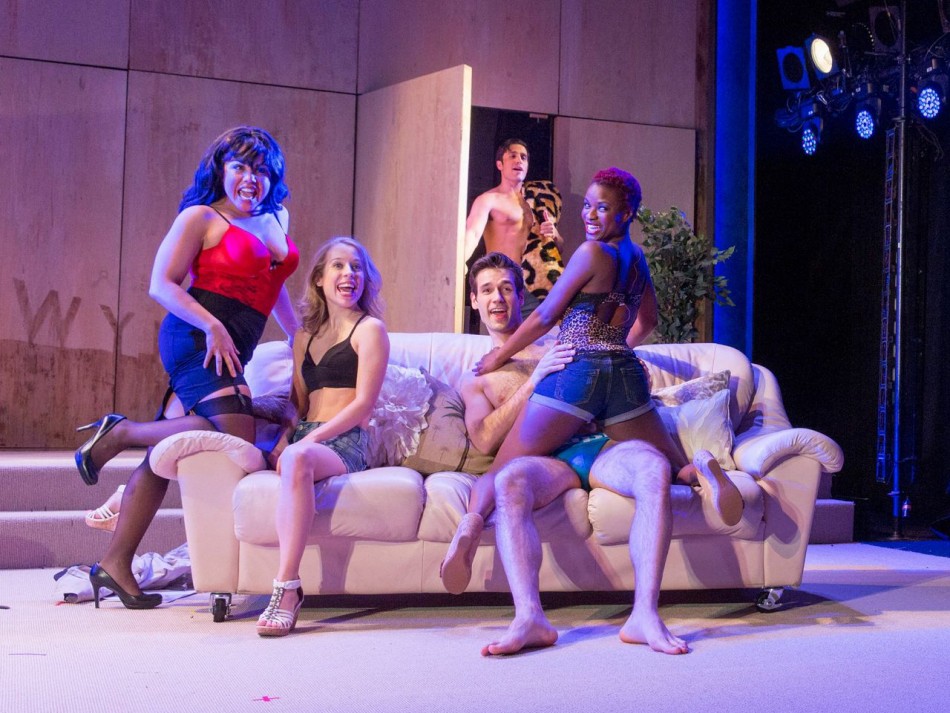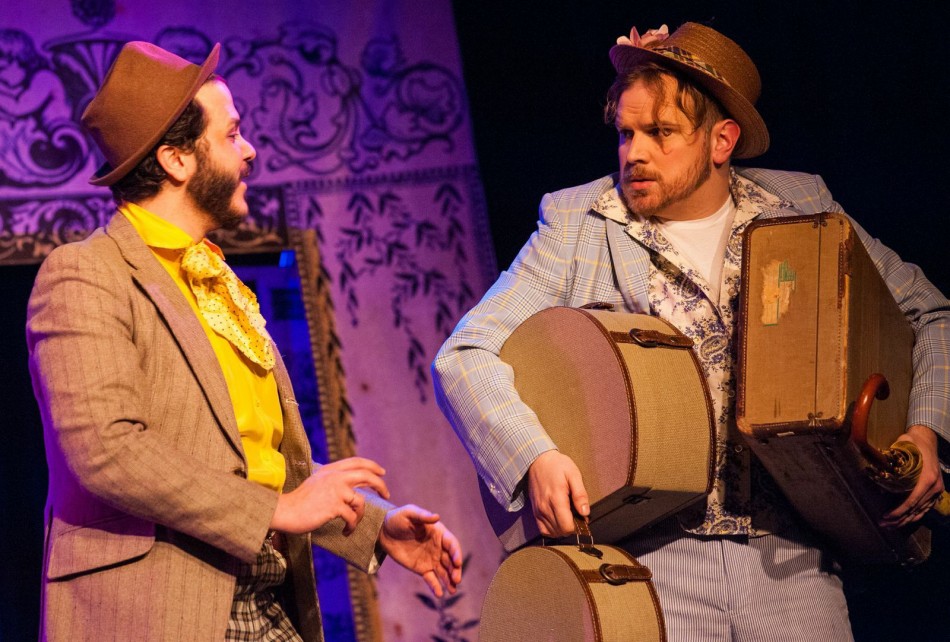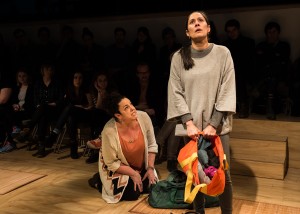by Michael Bracken
“Listen, it’s no fun to get old.”
So Howard (David Cromer) tells his mother-in-law, Gladys (Elaine May), in The Waverly Gallery, currently in revival at the Golden Theatre. Of course, he’s right, at least for Gladys. Well into her eighties, hard of hearing, and somewhat forgetful when the play starts, she goes nowhere but downhill. At first the slope is gentle, but by Act II it’s deadly steep. Past and present become interchangeable, the world less recognizable. Confusion bleeds into fear.
For the audience, it’s another story. As dark as things get for Gladys by the end of the show, for much of it she shines. And in May’s hands she’s a glorious beacon. Her head is cocked, her body tilted slightly, her limbs God knows where. Her movements are small, smooth and sudden at the same time, with all the tentative grace of a child not quite sure on her feet. She’s fascinating.
But it’s her voice that truly captivates. How can the questioning, rising intonation of a modulated honk possibly produce such sweet music? Each melodic phrase rises upward; sentences begin fast and end slow. And we’re enthralled because Gladys knows what a charmer she was in her day. She just doesn’t know her day is over. Thank God for that.
Funny. God, is she funny. May’s phrasing is flawless: she could teach Sinatra a thing or two. Playwright Kenneth Lonergan’s lines aren’t always humorous in and of themselves. But they’re tailor made for laughs in the mouth of a sprightly old woman who repeats the same questions and comments over and over with impeccable intonation and sly allure.
Known more of late for her writing and directing skills, May’s comedic acting chops are dazzling. Her delivery, perfected early in her career doing hilarious routines with Mike Nichols, couldn’t be better. If you want to know what they mean when they talk about comic timing, go see Elaine May as Gladys Green.
But back to getting old not being fun. That’s pretty much the plot summary for The Waverly Gallery. Sure, there’s Don (Michael Cera), a New England artist who happens into the small Greenwich Village art gallery where Gladys spends her days. When she was younger, she had lots of openings and customers, but now the same paintings hang forever and almost never sell.
So when Don tells her he’ll sleep in his car, Gladys is happy to let him camp out in the back of the shop. She mounts an opening for him. We think he might introduce a contrasting story line, but no such luck. No one comes to his show; he moves back to Massachusetts. He’s a dull character with no idea how dull his paintings are. He’s good for a modest chuckle, but that’s about it.
Lucas Hedges plays Daniel, Gladys’s grandson, who has an apartment down the hall from her. He also narrates the play. His performance is nicely muted, even if his reaction to his grandmother’s deterioration is explosive at times. He loves Gladys but stops answering the door when she keeps knocking again and again, sometimes in the middle of the night.
His mother, Ellen (Joan Allen), has even less patience than he does. It’s hard not to wish they weren’t more understanding, but they’re only human. And Gladys is a handful.
Scenic designer David Zinn captures the essence of an Upper West Side kitchen circa 1990 (Ellen and Howard’s) and a tiny West Village art gallery of the same vintage. Video projections between scenes include automobiles from the 1930’s or 40’s – I’m not sure why.
Director Lila Neugebauer’s top priority is giving May plenty of room to light up the stage. As well it should be.
Photos: Brigitte Lacomb
Open-ended run at the Golden Theatre (252 West 45th Street). https://thewaverlygalleryonbroadway.com/ . 2 hours 10 minutes with one intermission.


